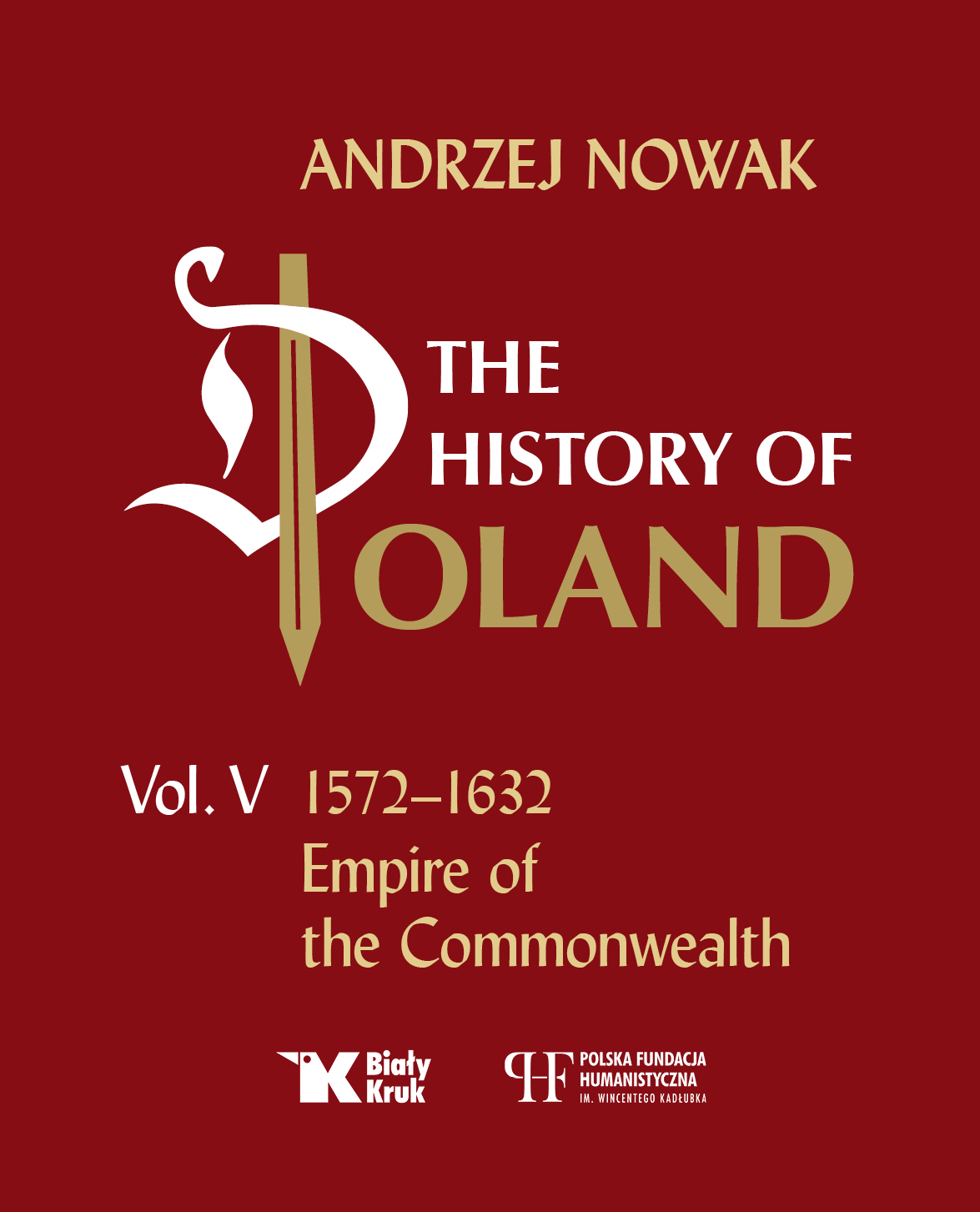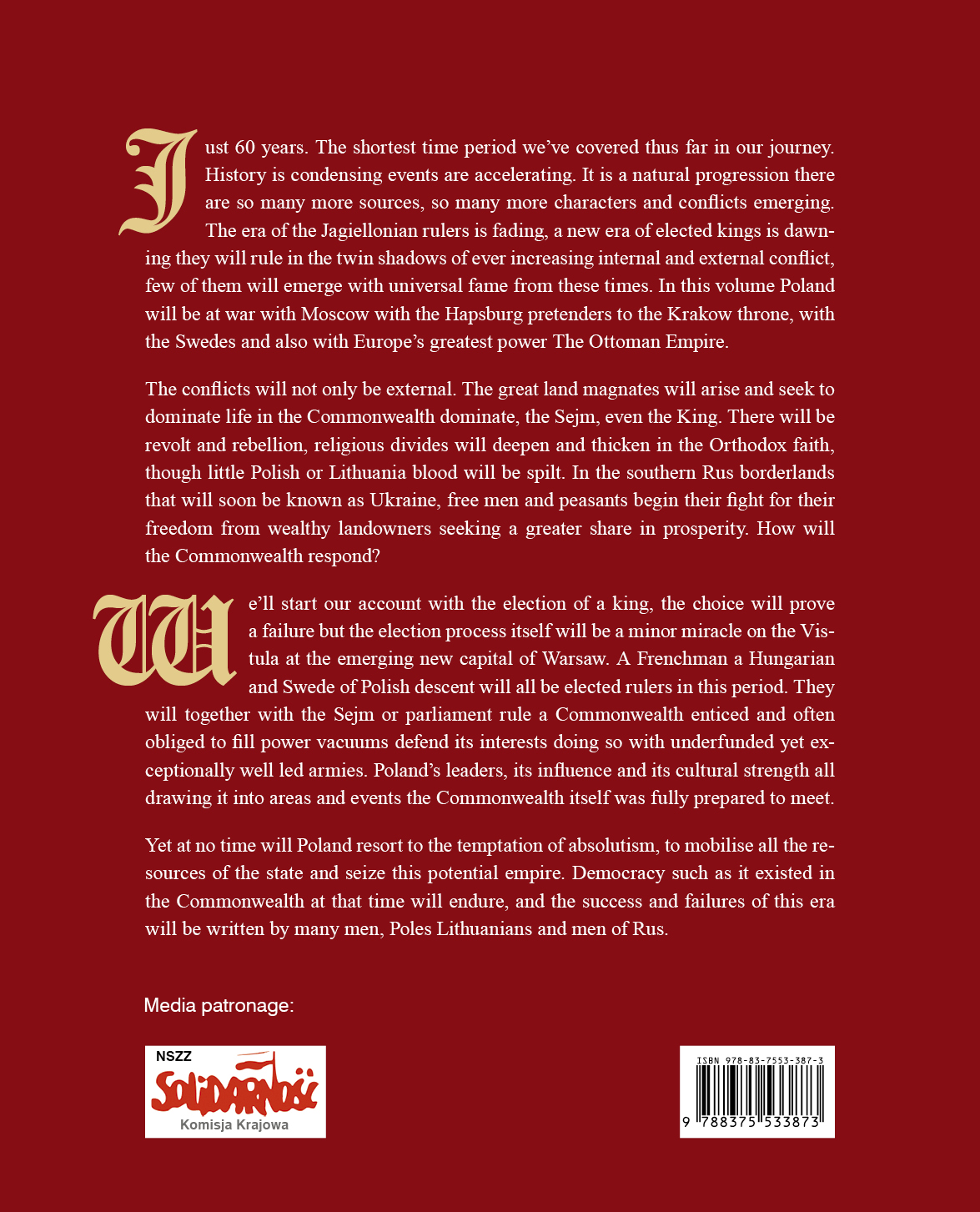The History of Poland - t. 5
Just 60 years. The shortest time period we’ve covered thus far in our journey. History is condensing events are accelerating. It is a natural progression there are so many more sources, so many more characters and conflicts emerging. The era of the Jagiellonian rulers is fading, a new era of elected kings is dawning they will rule in the twin shadows of ever increasing internal and external conflict, few of them will emerge with universal fame from these times. In this volume Poland will be at war with Moscow with the Hapsburg pretenders to the Krakow throne, with the Swedes and also with Europe’s greatest power The Ottoman Empire.
The conflicts will not only be external. The great land magnates will arise and seek to dominate life in the Commonwealth dominate, the Sejm, even the King. There will be revolt and rebellion, religious divides will deepen and thicken in the Orthodox faith, though little Polish or Lithuania blood will be spilt. In the southern Rus borderlands that will soon be known as Ukraine, free men and peasants begin their fight for their freedom from wealthy landowners seeking a greater share in prosperity. How will the Commonwealth respond?
We’ll start our account with the election of a king, the choice will prove a failure but the election process itself will be a minor miracle on the Vistula at the emerging new capital of Warsaw. A Frenchman a Hungarian and Swede of Polish descent will all be elected rulers in this period. They will together with the Sejm or parliament rule a Commonwealth enticed and often obliged to fill power vacuums defend its interests doing so with underfunded yet exceptionally well led armies. Poland’s leaders, its influence and its cultural strength all drawing it into areas and events the Commonwealth itself was fully prepared to meet.
Yet at no time will Poland resort to the temptation of absolutism, to mobilise all the resources of the state and seize this potential empire. Democracy such as it existed in the Commonwealth at that time will endure, and the success and failures of this era will be written by many men, Poles Lithuanians and men of Rus.
512 pages, ISBN 978-83-7553-387-3

